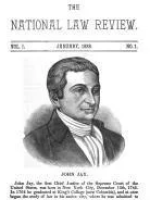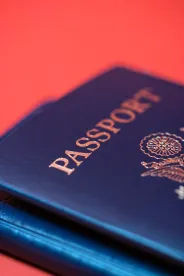On August 8th, 2013 the Department of State hosted a live discussion on consular processing for same-sex couples using Google+ Hangouts and YouTube. The panel included David Stewart, Consul General of the U.S. Embassy in London, Don Heflin, Managing Director of the State Department’s Visa office, and Victoria Neilson, Legal Director of Immigration Equality, an organization that advocates on behalf of LGBT and HIV-positive immigrants. People were invited to submit questions in advance through Facebook and Twitter. Chris Johnson, chief political and White House reported for the Washington Blade moderated the hangout.
Mr. Heflin highlighted what the Department of State wishes to accomplish following the Windsor decision:
“We are striving to as quickly as possible to ensure that the global playing field for same-sex couples and families. That said, the visa process, particularly immigrant visa process, is sometimes very complicated… in certain cases you may well need an immigration attorney. So a level playing field isn’t always going to lead to easy or quick answers for families but it’s going to lead to same answers that opposite-sex families have enjoyed for decades. And that’s our goal.”
Below is a summary of the specific questions that were addressed:
Will the Department of State and USCIS take into consideration how long same-sex couples have had to wait for the DOMA to be overruled and perhaps provide expedited treatment in the processing of applications?
As a practical matter, there will be some expediting of applications. The Department of State has expedited applications in the past to help groups of people achieve get settled in the U.S. sooner. For example, the DOS tend to expedite applications at the beginning of the school year to help people who are coming to the U.S. as students, and to help families who come here with children get settled so they can begin schooling at the beginning of the year. The consulate is more willing to expedite non-immigrant visas. Immigration, by nature, does not move very fast but they have been keeping a running spreadsheet of cases denied specifically because of DOMA. This log should help speed up the process for same-sex couples who have already applied and been denied.
How will foreign domestic partnerships be treated under the new law?
The Supreme Court in Windsor removed restrictions on same-sex marriage but was silent on domestic partnership. Many government agencies are working together and looking at this more difficult question. It will likely take months to resolve how civil unions are viewed. Ms. Neilson advised that if same-sex couples can get married, their rights will be much more certain. There is a DOS provision in the Foreign Affairs Manual that recognizes common law marriages in circumstances where they are equivalent to marriage in the state where they occur. This provides a legal argument to be made in favor of recognizing civil unions. The DOS specifically came out and said that they are only recognizing same-sex marriages and not civil unions as of now. If you can get married, it is the safer and faster route to go.
Will visas to same-sex foreign spouses be predicated on U.S. residency? (ie. Must the same-sex spouse live in a state where same-sex marriage is legally recognized?)
The USCIS has specifically stated that they will not take into account where in the U.S. you will be moving to once you receive your visa. If you were married in a place where same sex marriage was legal, and you otherwise qualify for the visa, they are not going to look at where the couple will reside in the U.S.
How are people in the UK taking advantage of this change in terms of how many visa applications are being filed in London?
The UK has been supportive of LGBT issues and has just recently passed a law legalizing same-sex marriage that goes into effect next summer. Because of this the consulate in London does not anticipate a surge of locally based cases until the UK same-sex marriage laws go into effect. The first case that was filed with the consulate was from a couple who had gotten married in the U.S. If couples were married in a different jurisdiction that recognizes same-marriage, the consulate is happy to handle their application. Since the DOMA decision, the London consulate has noticed about a 5% increase in fiancé cases. They are not identifying the cases by whether they are same-sex couples or not, but this increase may very well have been due to an increase in same-sex engagements. London does have a USCIS presence and is accepting petitions by people presently residing in the UK. In fact, those cases can be processed relatively quickly compared to processing in the U.S.
I am a U.S. citizen partnered with a Mexican citizen since and I currently live in Mexico City. We are planning to get married next year in New York City. Can we apply for fiancé visa while in Mexico?
You can apply for a fiancé visa while in Mexico. In Mexico City, same-sex marriage is legal, so it is anticipated that many couples that were married in Mexico City will be applying.
The fiancé visa is a two-step process: 1) the USC fiancé must file a petition for their fiancé through the USCIS; 2) upon approval of the petition from the USCIS, the immigrant fiancé must apply for the visa. Countries with a USCIS presence give people the opportunity to file their petition locally, as opposed to filing with the USCIS in the States. As stated previously the approval process is typically much quicker this way. Mexico has a USCIS presence, so same-sex couples can file petitions locally and apply for their visa at the consulate in Ciudad Juarez. Once the fiancé visa is approved, the couple can travel to the U.S., get married and file to adjust their status in the U.S.
I am a U.S. citizen partnered with a Costa Rican citizen. I want to apply for a fiancé visa and get married in California. Must my spouse remain in the U.S. for a specific amount of time while the green card application is being processed?
The fiancé visa is unusual because it allows for a foreign national to enter the country and get married within 90 days of entrance. If the couple wanted to continue to live in Costa Rica, they would get married and return to Costa Rica. If the foreign spouse wanted to apply for a green card, then the couple would actually have to reside in the U.S. following the marriage. If you are present in the U.S. and have applied for adjustment of status, then your green card application will be deemed abandoned if you leave the U.S. without obtaining an Advance Parole document. Therefore, your spouse should remain in the U.S. while the application is pending. Once legal permanent resident status is granted, people who leave the country for more than six months are at risk of abandoning their green card.
I am a U.S. citizen and married to an undocumented person living in the U.S. Is there anyway for him or her to adjust status without leaving the country?
If the immigrant spouse entered on a visa and overstayed, then his or her unlawful presence is forgiven and an adjustment of status application can be filed from within the U.S. If the spouse entered without inspection, he or she cannot file for adjustment while within the U.S. even if married to a U.S. citizen. The spouse must leave the U.S. to file, and there is a strong likelihood that he or she will face with an admissions bar that would keep him or her out for one, three, or ten years, or potentially indefinitely.
There are two potential exceptions to this. First is an exception where you have a previous application pending for your immigrant spouse that was filed before 2001. If it can be shown that someone filed a petition for your spouse (parents, siblings, children), then the spouse would file under this exception. As time passes, there are fewer and fewer people who are eligible for this option. A new provisional waiver was introduced this year that would allow immediate relatives of U.S. citizens to file waivers and remain in the States, but it process is complicated. Anyone contemplating filing a provisional waiver should speak with an immigration attorney before filing anything because they are potentially at risk for being put into removal proceedings.
In what countries is same-sex marriage legal?
Applications are being processed based on marriage certificates obtain in any country or state where same-sex marriage is legal. There are currently fifteen countries and thirteen states including D.C. that recognize same-sex marriages. A list of countries where same-sex marriage is legal can be found here.




 />i
/>i
